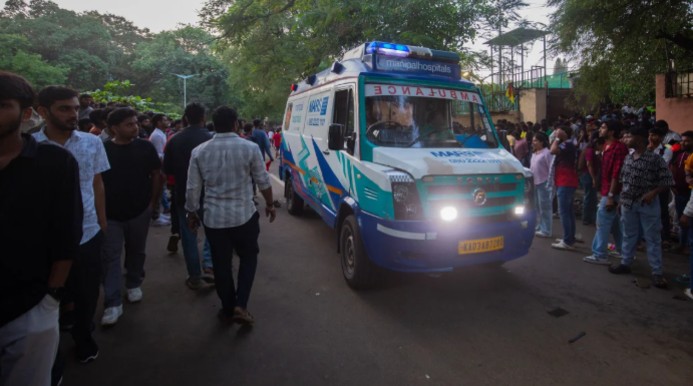
Smoke and fire erupt from the site of an Israeli airstrike on Beirut's southern suburbs on June 5.
In a dramatic escalation, Israel launched powerful airstrikes on alleged Hezbollah drone production sites in southern Lebanon and the suburbs of Beirut on Thursday. The assault, which targeted the militant group’s UAV (unmanned aerial vehicle) infrastructure, caused panic among residents and marked the most intense attack since the U.S.-brokered ceasefire in November 2024.
Strikes Hit Hezbollah Drone Facilities
The Israeli Defense Forces (IDF) confirmed they had targeted “terror facilities” linked to Hezbollah’s Aerial Unit 127. One of the main strike locations was Dahieh, a densely populated suburb in southern Beirut known to be a Hezbollah stronghold.
Israel claimed the strikes were aimed at underground drone manufacturing facilities. These attacks, conducted via drones, were also reported in Ain Qana, a town in the Iklim al-Tuffah region. The national Lebanese news agency NNA reported a “series of warning strikes” and multiple air raids throughout the day.
Residents Urged to Evacuate
In an unusual move, the IDF issued multiple public warnings before the attacks. IDF’s Arabic spokesperson Avichay Adraee posted on social media, urging residents of Al-Hadath, Haret Hreik, and Burj Al-Barajneh to evacuate immediately. Satellite images showing the targeted zones were shared along with the warnings.
The Israeli military warned citizens to maintain a distance of 300 to 500 meters from suspected Hezbollah sites. These alerts sparked widespread panic, with videos circulating on social media showing long queues of cars fleeing southern Beirut hours before the strikes.
Attacks Ahead of Eid al-Adha
The airstrikes occurred just before Eid al-Adha, a significant Muslim holiday celebrated across Lebanon. The timing intensified the emotional and political impact of the strikes, as many families were preparing for celebrations on Thursday night.
Although no casualties were reported immediately, the strikes caused major disruption in civilian areas. Lebanon’s Ministry of Public Health stated early Friday that no fatalities had been confirmed.
Lebanon Condemns Israeli Action
Lebanese officials reacted strongly. President Joseph Aoun condemned the attacks as a “blatant violation” of international law, especially on the eve of a sacred holiday. Prime Minister Nawaf Salam echoed this sentiment, calling the raids unjustified and inflammatory.
In response, Israeli Defense Minister Israel Katz stated firmly: “There will be no calm in Beirut or stability in Lebanon without security for Israel. Agreements must be respected.”
Ceasefire and Diplomatic Fallout
This latest military action threatens to unravel the fragile truce that was put in place in November 2024. The Lebanese army has now warned that it may suspend cooperation with an international monitoring group led by the United States and France. This committee is tasked with overseeing the terms of the ceasefire and managing disarmament discussions with Hezbollah.
Meanwhile, Lebanon’s newly formed government has pledged to disarm paramilitary groups, including Hezbollah. Prime Minister Salam recently announced that over 500 weapons had been seized north of the Litani River, a region long associated with Hezbollah activity.
A Fragile Peace at Risk
This is not the first time Israel has struck the Dahieh suburb. Similar attacks occurred in March, further destabilizing the ceasefire’s effectiveness. The continued military operations highlight the difficulty of maintaining peace amid rising tension between Israel and Hezbollah.
As Lebanon navigates a sensitive political period and prepares for significant religious observances, the drone strike escalation has reignited fears of a broader conflict. The targeting of Hezbollah’s drone sites by Israel could signal a new chapter in the long-standing hostilities between the two nations.















